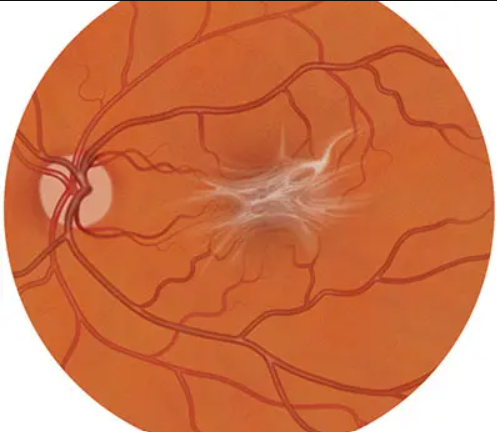Macular pucker is a rare eye condition that occurs when a thin layer of scar tissue forms on the surface of the retina, specifically over the macula- the central part responsible for our sharpest vision. This scar tissue can cause the macula to wrinkle or “pucker,” leading to various vision problems.
Symptoms
The most common symptoms of macular pucker include:
- Blurred or distorted central vision
- Wavy or crooked appearance of straight lines
- Difficulty reading small print or seeing fine details
- A tiny gray blind spot in central vision
- Trouble recognizing faces
It’s important to note that the severity of symptoms can vary greatly from person to person, with some experiencing little to no vision loss while others may have more significant impairment.

Treatment Options
For mild cases of macular pucker, treatment may not be necessary. Regular eye exams are recommended to monitor the condition’s progression. However, if symptoms worsen and begin to affect daily activities, treatment options are available:
- Observation: Regular monitoring of visual acuity and symptoms.
- Medication: In some cases, eye drops or other medications may be prescribed to alleviate symptoms or reduce inflammation.
- Surgery: For severe cases that significantly impact vision, a procedure called vitrectomy may be recommended. This surgery involves removing the vitreous gel and scar tissue causing the macular pucker.
Post-surgery recovery can take several weeks to months, with vision potentially continuing to improve for up to a year.
While macular pucker can affect vision quality, it’s generally not considered as serious as some other retinal conditions and is unlikely to cause blindness. However, if you experience any changes in your vision, it’s crucial to consult a retina specialist for proper diagnosis and treatment.






